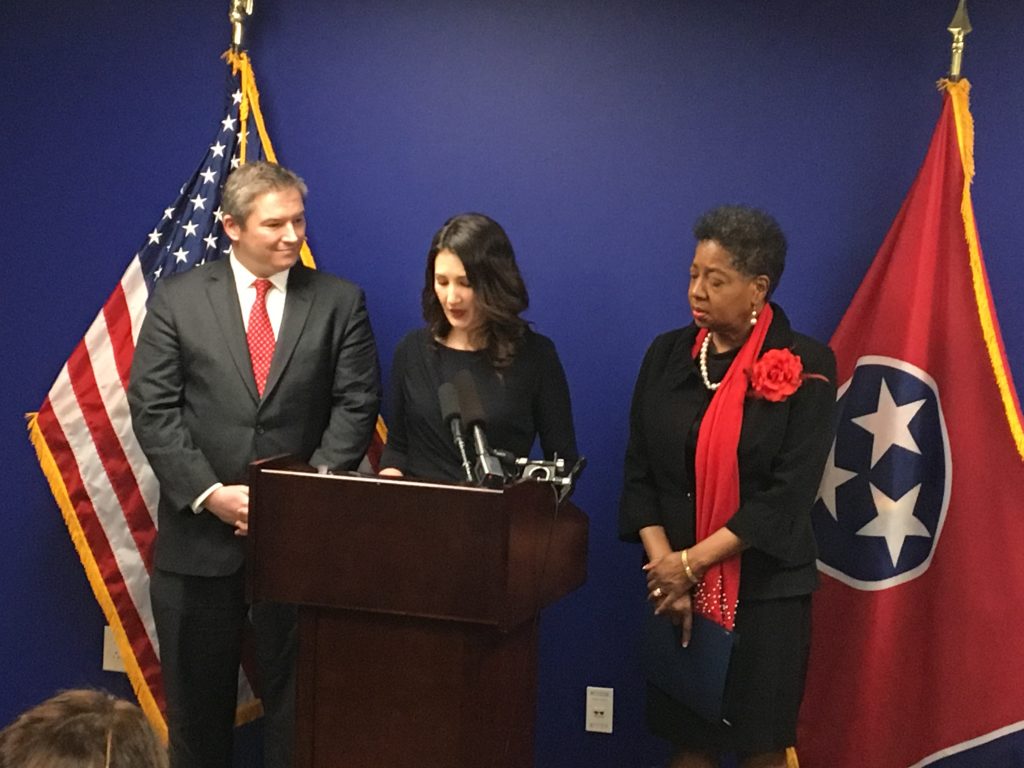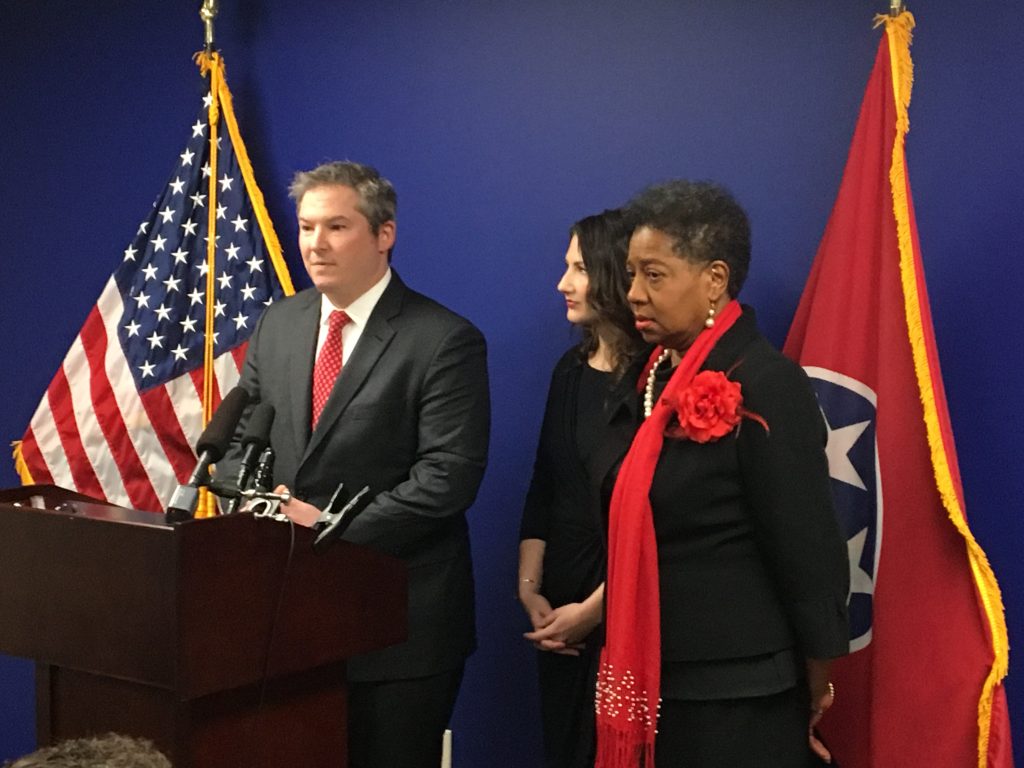

Pictured (L-R):TN Senator Jeff Yarbro; Katie Armiger; TN House Representative Brenda Gilmore
State Senator Jeff Yarbro and State Representative Brenda Gilmore joined industry members at a press conference in Nashville on Monday (March 5) to advance legislation to extend workplace protections to contractors and consultants.
House Bill 1984 and Senate Bill 2130 would give independent contractors in any industry the same workplace protections against harassment as employees.
“This legislation is aimed at curing a problem that is far too prevalent in our society. Many of us have known it’s been a problem for a lot longer,” said Yarbro during the conference. “Nashville is the capital of the country music world and every year, thousands of people move to Tennessee to be part of what is a multi-billion dollar industry. But little do they know that when chasing their dreams to Tennessee, that if they make it, they are entering into a world filled with legal loopholes, devoid of the protections that most of us expect and take for granted in the workplace. That’s what we are trying to fix today. There are so many people in our city who have come and joined the music business, trying to make their economic life come together, their creative life come together and too often, predators and people who are flouting the norms of our society stand in their way.”
“Anyone who reads a newspaper right now or follows what is going on in the music business knows that we’ve had a string of problems with predatory behavior across the spectrum. I think a lot of us learned about this for the first time when Taylor Swift brought a countersuit for assault and battery in Colorado last year. The reality is most that are trying to make it in the music industry can’t afford to just bring legal action where the total damages are going to be $1. They need stronger legal protections. We need to see a change in culture that says that harassment isn’t ok anytime, anyplace, in any industry or any sector of our economy. We have to say ‘Enough.’ That’s what this legislation seeks to do. Most people in the country music business aren’t falling into the typical employer-employee relationship. And so what this legislation does is expand workplace protections to those who are independent contractors, those who are performing services, so those people too can be protected from sexual harassment in the workplace. All of our people, regardless of what forms they fill out and what precise legal formalities their employment falls into, should be protected.”
A supporter of the legislation, singer-songwriter Katie Armiger, was on hand during the event to relate her experiences with predatory behavior in the music industry.

Pictured (L-R): TN Senator Jeff Yarbro; Katie Armiger; TN House Representative Brenda Gilmore
“In the past three years, after having experienced many uncomfortable situations over the course of being an artist, I felt forced to choose between my self-worth and respect, or performing,” Armiger said. Armiger has been performing since she was a child, and later signed a deal with Cold River Records.
“In [my parents’] minds, there was a certain amount of safety because it was a relative of my mother’s who was starting the record label around my career…My first album was released when I was 16 and the label released four more albums and 15 singles of my work. Seven songs made the charts and 20 music videos. My social media numbers were consistently growing and I was touring and performing as often as the label would book me. I attended red carpet events and worked with my idols.
“But there was a dark side. By the time I was 18, I’d been exposed to behaviors and expectations that made me uncomfortable. It ranged from innuendos and comments to outright unwanted touching. Not only was it confusing but it was humiliating. This was happening at the hands of powerful, influential professionals that I was supposed to impress with my music. Like many, I was told it was all just being part of the business. Here’s the problem I see: An artist is a product, a product that an entire business is built around. I wasn’t an entrepreneur or an employee. I wasn’t a freelancer or a contractor. According to current employment law, being signed to a record label is a relatively undefined position. I was essentially allowed to use my talent to pursue my dreams, but only with the investment of others. And so I was subjected to their insistence about how I should behave. I was a teenager dealing with radio programmers touching me under tables at industry events and making inappropriate sexual remarks. I was told not only to tolerate it, but to encourage it, if I wanted my music to be played. When I resisted I was shown photos of other female artists hugging and kissing industry decision makers, as if my career would suffer if I didn’t play this role.”
HB 1984 is set to be heard at 3 p.m. Wednesday, March 7 in the House Human Resources subcommittee in House Hearing Room IV in the Cordell Hull Building. Companion legislation, SB 2130, will be heard at a later date.
State Sen. Yarbro represents District 21 in Nashville and serves as Senate Democratic Caucus chairman. State Rep. Gilmore represents District 54 in Nashville.

Category: Featured, Financial/Legal
About the Author
Jessica Nicholson serves as the Managing Editor for MusicRow magazine. Her previous music journalism experience includes work with Country Weekly magazine and Contemporary Christian Music (CCM) magazine. She holds a BBA degree in Music Business and Marketing from Belmont University. She welcomes your feedback at jnicholson@musicrow.com.View Author Profile


